Solidity developers are the architects of smart contracts and decentralized applications (dApps) on the Ethereum blockchain. They write the code that automates transactions and enforces agreements, ensuring security and efficiency in the decentralized ecosystem.
Solidity development skills include proficiency in the Solidity programming language, a deep understanding of blockchain technology, and the ability to write secure and optimized smart contracts. Additionally, skills like logical thinking and attention to detail are crucial for success in this role.
Candidates can write these abilities in their resumes, but you can’t verify them without on-the-job Solidity Developer skill tests.
In this post, we will explore 7 essential Solidity Developer skills, 7 secondary skills and how to assess them so you can make informed hiring decisions.
Table of contents
7 fundamental Solidity Developer skills and traits
The best skills for Solidity Developers include Solidity Proficiency, Smart Contract Design, Blockchain Understanding, Ethereum Tools, Security Best Practices, Version Control and Testing and Debugging.
Let’s dive into the details by examining the 7 essential skills of a Solidity Developer.
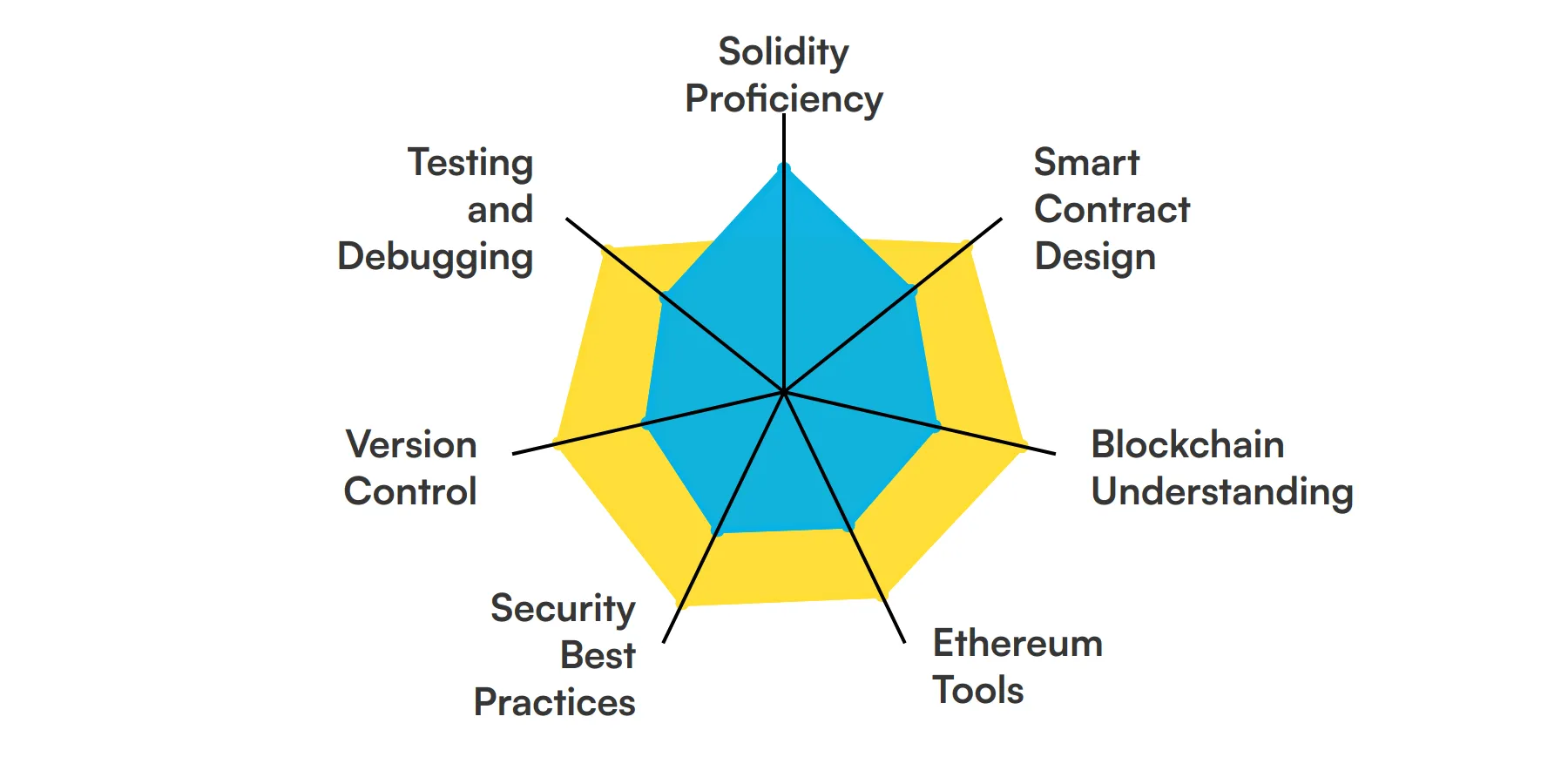
Solidity Proficiency
A Solidity developer must be adept in Solidity, the primary programming language for writing smart contracts on Ethereum-based projects. Understanding syntax, functions, and advanced features like inheritance and interfaces is crucial for developing secure and efficient decentralized applications (DApps).
For more insights, check out our guide to writing a Solidity Developer Job Description.
Smart Contract Design
Designing smart contracts involves more than just coding. A Solidity developer needs to architect contracts that are not only functional but also secure and optimized for gas consumption. This skill is fundamental in preventing vulnerabilities and ensuring the contracts operate under all conditions.
Blockchain Understanding
A thorough understanding of blockchain technology's principles and mechanics is essential for a Solidity developer. This knowledge helps in making informed decisions about contract deployment, interactions with different blockchains, and integration of external data through oracles.
Check out our guide for a comprehensive list of interview questions.
Ethereum Tools
Familiarity with the Ethereum ecosystem's tools such as Truffle, Hardhat, and Ganache is necessary for testing, deploying, and managing applications. A Solidity developer uses these tools to streamline development workflows and ensure that applications are ready for production.
Security Best Practices
Implementing security best practices is critical for a Solidity developer. They must be skilled in identifying and mitigating potential security threats like reentrancy, overflow/underflow, and front-running to protect the integrity of the blockchain applications.
For more insights, check out our guide to writing a Cyber Security Engineer Job Description.
Version Control
Proficiency in version control systems like Git is essential for Solidity developers to manage changes in codebase, collaborate with other developers, and maintain a history of modifications which is crucial for debugging and development.
Testing and Debugging
A Solidity developer must rigorously test and debug smart contracts to ensure they execute as intended. Effective use of testing frameworks like Mocha and Chai is important to simulate various conditions and catch flaws before deployment.
Check out our guide for a comprehensive list of interview questions.
7 secondary Solidity Developer skills and traits
The best skills for Solidity Developers include JavaScript and Web3.js, Cryptography Basics, Gas Optimization, Contract Auditing, DApp User Experience, Networking and Continuous Learning.
Let’s dive into the details by examining the 7 secondary skills of a Solidity Developer.
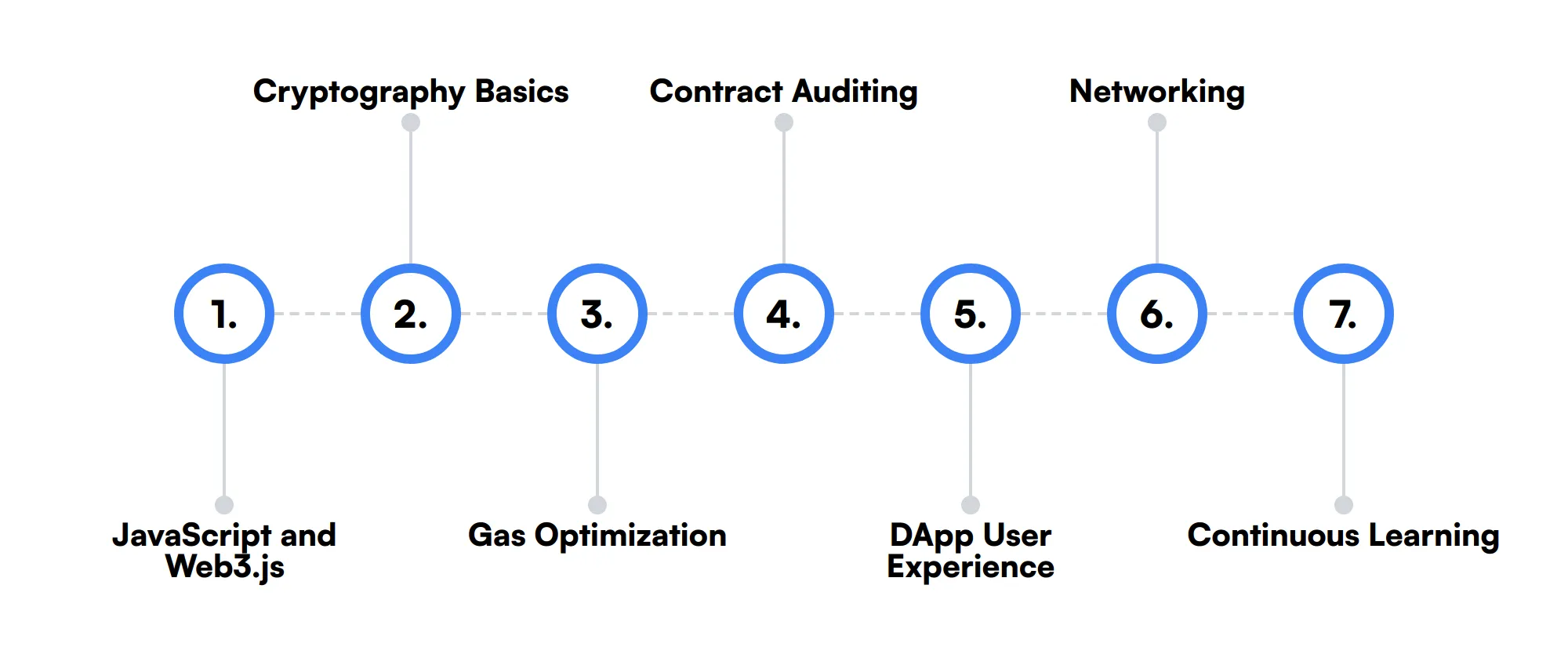
JavaScript and Web3.js
Knowledge of JavaScript and libraries like Web3.js or ethers.js is useful for a Solidity developer to interact with Ethereum nodes and create user-friendly interfaces for DApps.
Cryptography Basics
Understanding basic cryptography helps Solidity developers secure data and understand the cryptographic underpinnings of blockchain technology, enhancing the security of the applications they build.
Gas Optimization
Skills in optimizing gas usage are valuable for reducing the cost of transactions on the Ethereum network, making the DApps more efficient and accessible to users.
Contract Auditing
Ability to audit smart contracts for performance and security issues is a valuable skill that helps in improving the quality and trustworthiness of blockchain applications.
DApp User Experience
Understanding user experience design for decentralized applications helps in creating more intuitive and user-friendly interfaces that can drive adoption and user satisfaction.
Networking
Solidity developers benefit from networking within the blockchain community to stay updated on the latest technologies, tools, and security practices, which can significantly influence the success of their projects.
Continuous Learning
The blockchain field is rapidly evolving, making continuous learning a necessary skill for Solidity developers to keep up with new blockchain platforms, programming paradigms, and industry standards.
How to assess Solidity Developer skills and traits
Assessing the skills and traits of a Solidity developer involves a nuanced understanding of both technical expertise and the ability to apply this knowledge effectively in real-world blockchain projects. Identifying the right candidate goes beyond just glancing at their resume; it requires a deep dive into their practical abilities and problem-solving skills.
Given the complexity of blockchain technology and the critical nature of smart contracts, it's important to evaluate a candidate's proficiency in Solidity, their experience with Ethereum tools, and their understanding of security best practices. Additionally, assessing their skills in smart contract design, version control, and testing and debugging can provide a comprehensive view of their capabilities.
To streamline this process and ensure you're finding the best talent, consider using Adaface assessments. These tests are designed to measure a candidate's practical skills and are a proven method to enhance the quality of your hires significantly, with a reported 2x improvement in hire quality.
Let’s look at how to assess Solidity Developer skills with these 5 talent assessments.
Solidity Test
Our Solidity Test assesses proficiency in the Solidity programming language, used for writing smart contracts on the Ethereum blockchain.
The test evaluates knowledge of Solidity data types, control structures, function and event handling, contract deployment, debugging, and security considerations. It also covers blockchain fundamentals, smart contracts, and decentralized applications.
Successful candidates demonstrate a strong understanding of Solidity programming, blockchain security, and the ability to write secure smart contracts.
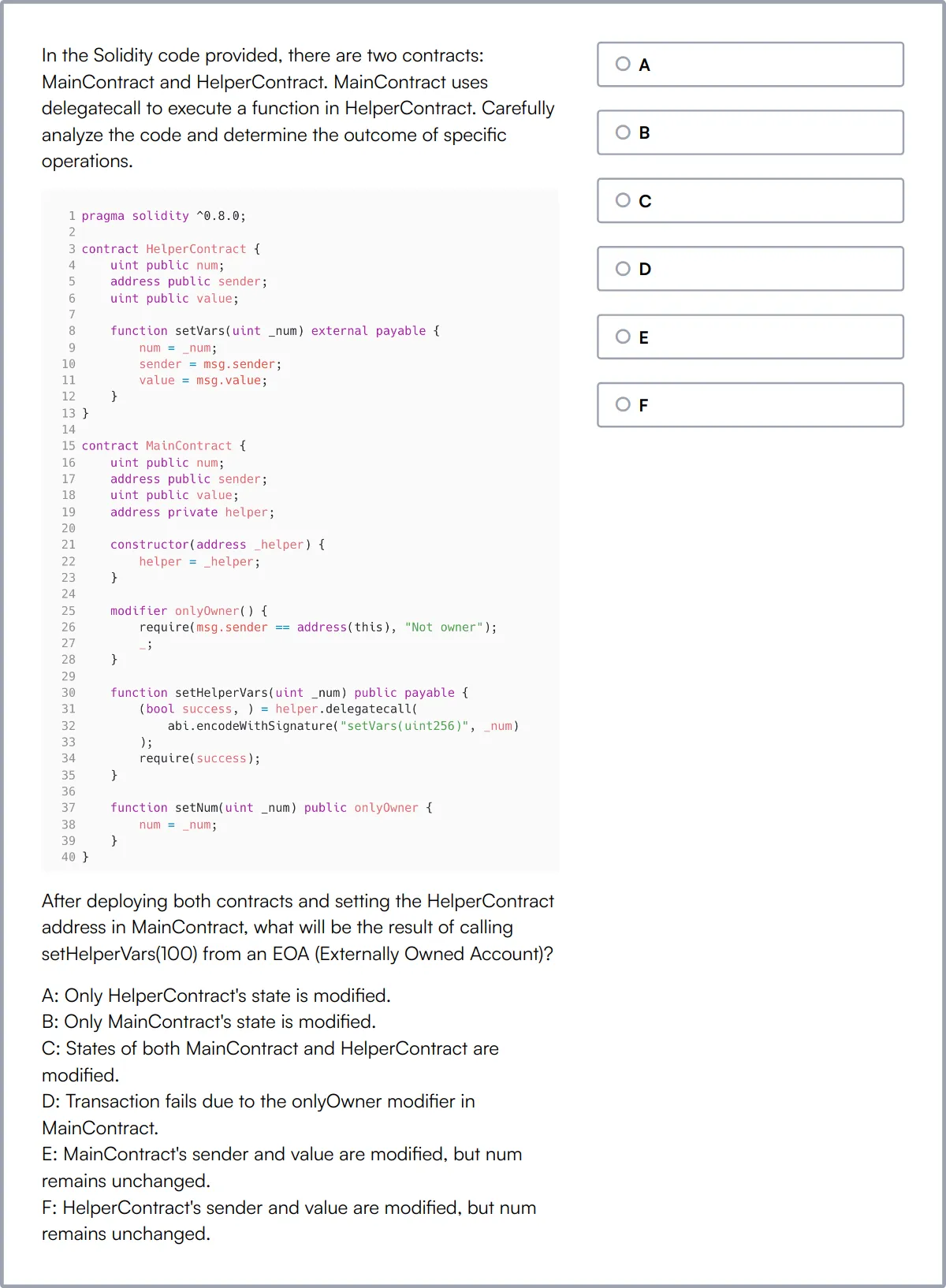
Blockchain Developer Test
Our Blockchain Developer Test evaluates technical knowledge and practical skills in blockchain development.
The test covers blockchain architecture, consensus algorithms, smart contracts, cryptocurrency, token economics, decentralized applications (dApps), and blockchain security. It assesses the ability to build innovative blockchain solutions.
Candidates who perform well show proficiency in blockchain platforms, development tools, and the ability to integrate and scale blockchain solutions.
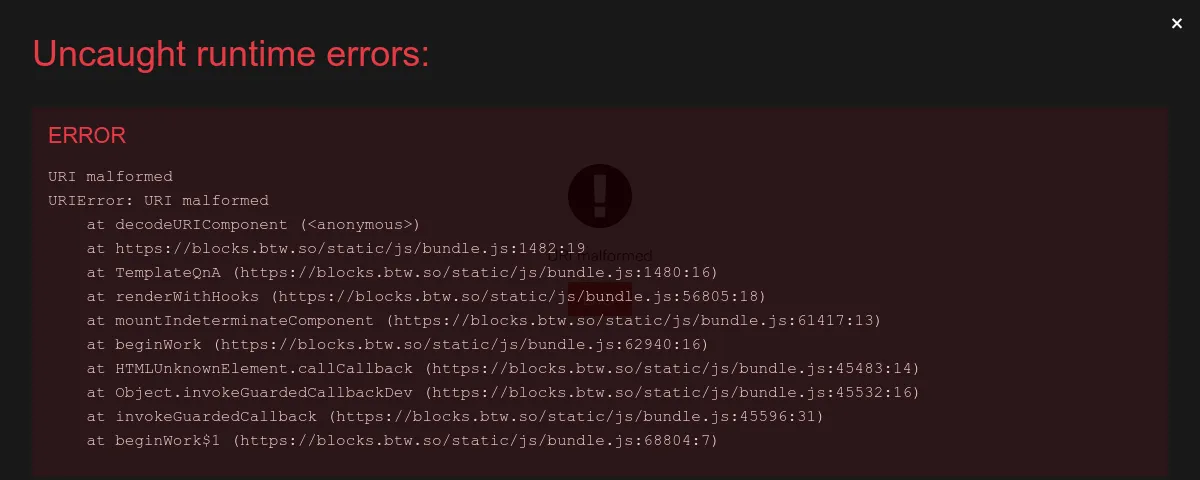
Penetration Testing Test
Our Penetration Testing Test evaluates knowledge and skills in penetration testing, network security, and vulnerability assessment.
The test assesses the ability to identify vulnerabilities, exploit them ethically, and provide recommendations for improving security. It covers network security, ethical hacking, and web application security.
High-scoring candidates demonstrate expertise in vulnerability assessment and the ability to enhance the security posture of systems and applications.
Git Online Test
Our Git Online Test evaluates understanding of Git, a popular version control system.
The test covers basic and advanced Git commands, conflict resolution, and proficiency in using Git to manage source code. It assesses knowledge of branching and merging, repository creation, and Git workflows.
Candidates who excel show a strong grasp of Git branching models and the ability to handle complex version control scenarios.
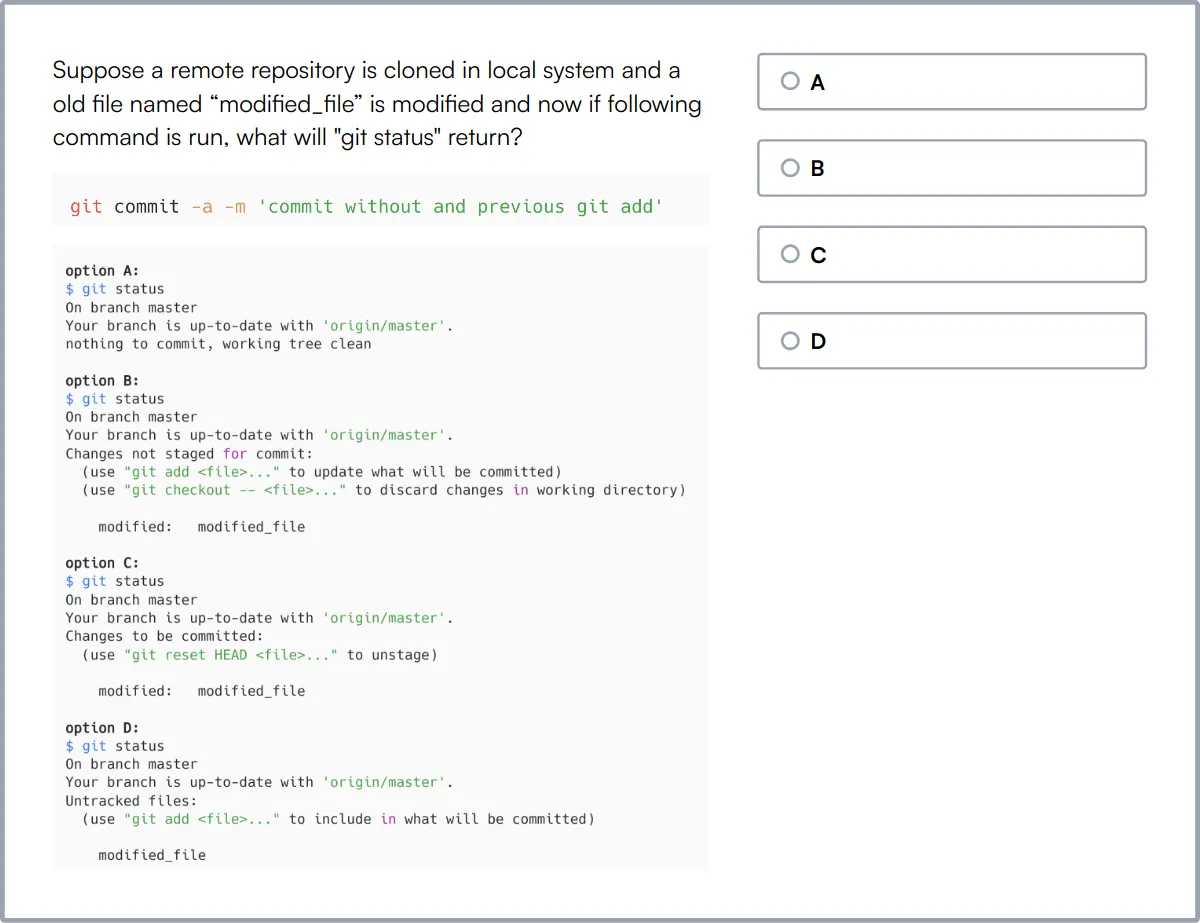
QA Engineer Test
Our QA Engineer Test evaluates understanding of various testing methodologies and test automation frameworks.
The test covers test planning and execution, bug tracking, regression testing, and test reporting. It also assesses knowledge of Selenium fundamentals and Linux fundamentals.
Successful candidates demonstrate proficiency in QA programming, program testing, and the ability to document and assess risks effectively.
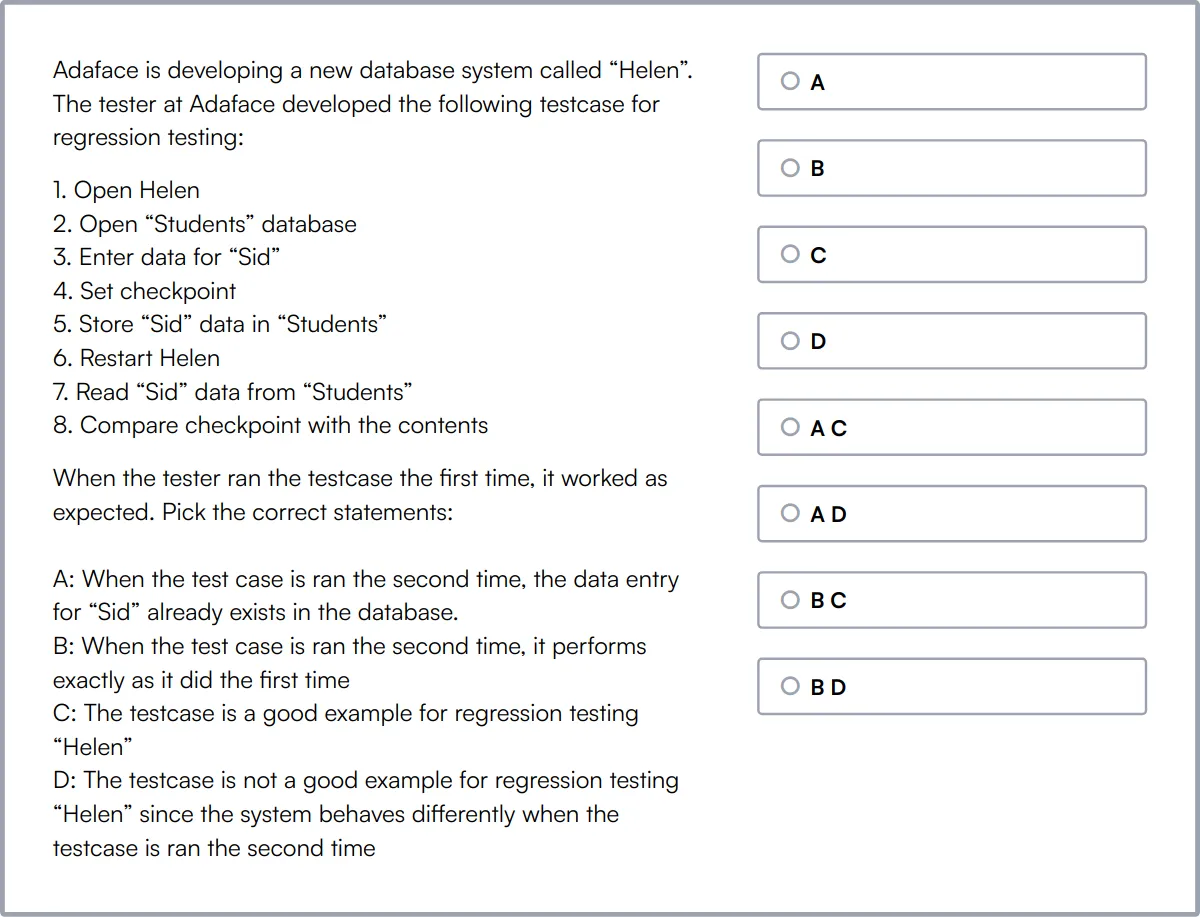
Summary: The 7 key Solidity Developer skills and how to test for them
| Solidity Developer skill | How to assess them |
|---|---|
| 1. Solidity Proficiency | Evaluate the ability to write and understand Solidity code. |
| 2. Smart Contract Design | Assess the skill in designing effective and secure smart contracts. |
| 3. Blockchain Understanding | Check knowledge of blockchain principles and operations. |
| 4. Ethereum Tools | Gauge familiarity with Ethereum development tools and environments. |
| 5. Security Best Practices | Determine awareness of security practices in smart contract development. |
| 6. Version Control | Evaluate proficiency in using version control systems like Git. |
| 7. Testing and Debugging | Assess the ability to test and debug smart contracts. |
Solidity Test
Solidity Developer skills FAQs
What is Solidity proficiency and why is it important for a developer?
Solidity proficiency refers to a developer's ability to write and understand Solidity code. It's important because Solidity is the primary language for writing smart contracts on Ethereum.
How can recruiters assess a candidate's smart contract design skills?
Recruiters can assess smart contract design skills by reviewing the candidate's past projects, asking for code samples, and conducting technical interviews focused on contract architecture and logic.
Why is understanding blockchain fundamentals necessary for a Solidity developer?
Understanding blockchain fundamentals helps developers grasp how decentralized systems work, which is essential for creating effective and secure smart contracts.
What Ethereum tools should a Solidity developer be familiar with?
A Solidity developer should be familiar with tools like Truffle, Hardhat, Remix, and Ganache for development, testing, and deployment of smart contracts.
How can security best practices be evaluated in a Solidity developer?
Evaluate security best practices by asking about common vulnerabilities (e.g., reentrancy, overflow) and how the candidate mitigates them in their code.
What role does version control play in Solidity development?
Version control, typically using Git, helps manage code changes, collaborate with team members, and track project history, which is crucial for maintaining smart contract integrity.
Why is testing and debugging important in Solidity development?
Testing and debugging ensure that smart contracts function as intended and are free from bugs, which is critical for the security and reliability of blockchain applications.
How relevant is JavaScript and Web3.js knowledge for a Solidity developer?
JavaScript and Web3.js are relevant because they are used to interact with Ethereum smart contracts from web applications, making them essential for full-stack blockchain development.

40 min skill tests.
No trick questions.
Accurate shortlisting.
We make it easy for you to find the best candidates in your pipeline with a 40 min skills test.
Try for freeRelated posts



